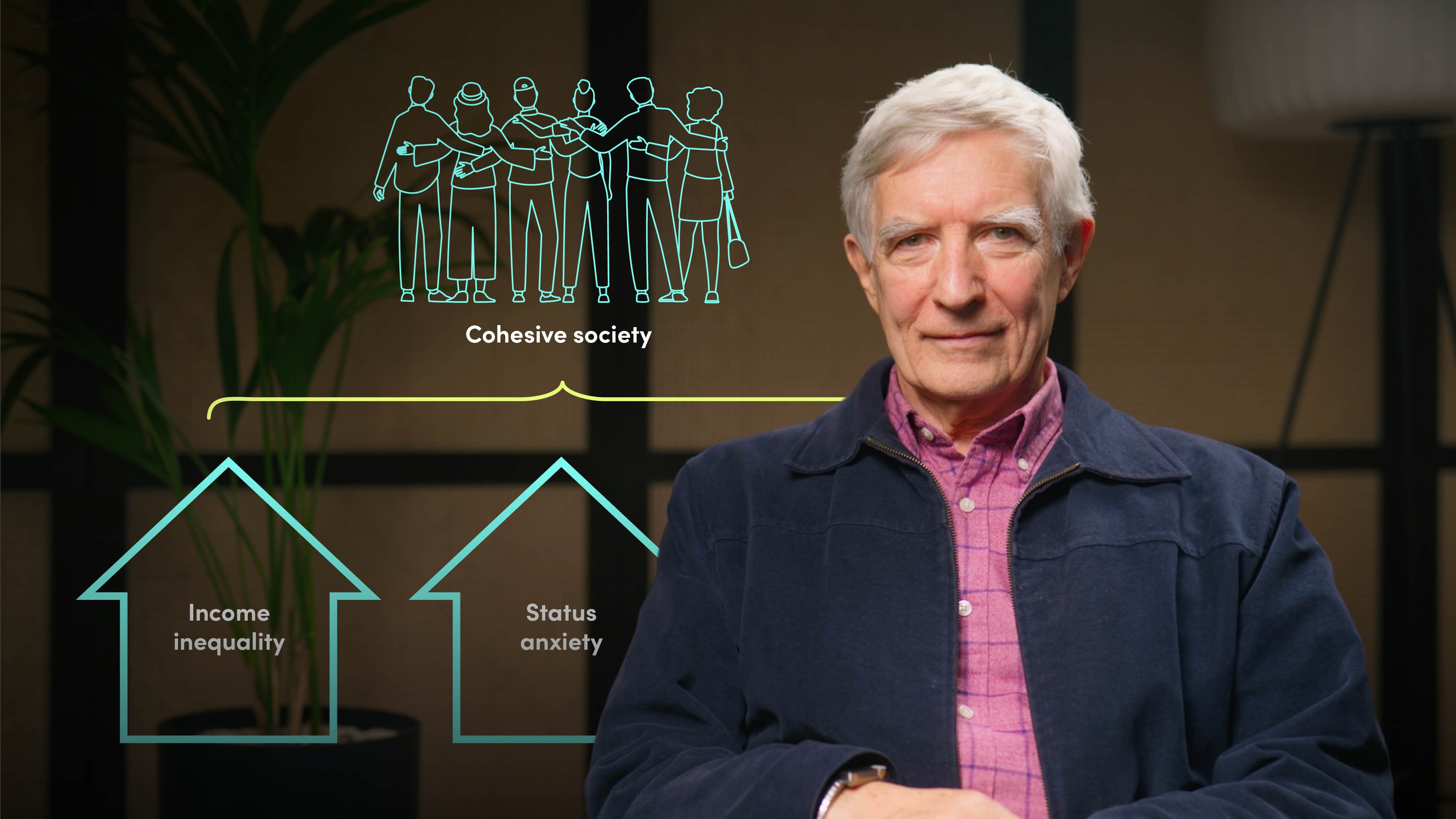
Impact of Economic Inequality on Sustainability

Richard Wilkinson
50 years: Social Epidemiology
In this video, Richard uncovers the far-reaching consequences of economic inequality on societies. From its impact on public health to social stability, he explores why it's not just a concern for the economically disadvantaged but affects everyone, even the well-off. He further discusses the evidence linking inequality to violence, reduced social cohesion, and educational challenges. He also talks about the international landscape and why addressing economic inequalities is vital for the overall improvement of society, fostering health, mobility, and societal harmony.
In this video, Richard uncovers the far-reaching consequences of economic inequality on societies. From its impact on public health to social stability, he explores why it's not just a concern for the economically disadvantaged but affects everyone, even the well-off. He further discusses the evidence linking inequality to violence, reduced social cohesion, and educational challenges. He also talks about the international landscape and why addressing economic inequalities is vital for the overall improvement of society, fostering health, mobility, and societal harmony.
Subscribe to watch
Access this and all of the content on our platform by signing up for a 7-day free trial.

Impact of Economic Inequality on Sustainability
11 mins 40 secs
Key learning objectives:
Understand the consequences of high levels of inequality
Understand that inequality impacts everyone, not just the poor
Understand the importance of addressing economic inequalities to improve overall society
Overview:
Economic inequality significantly impacts societies, with larger income disparities leading to worse outcomes in health, education, and social stability. Studies show that in more unequal societies, there is higher violence, lower social mobility, and increased mental health issues. Even the well-off are adversely affected in less equal countries. Inequality is not just about poverty but affects the entire social fabric, amplifying status anxieties and reducing overall well-being. Reducing material inequalities is crucial for improving health, well-being, and societal cohesion.
Subscribe to watch
Access this and all of the content on our platform by signing up for a 7-day free trial.
Subscribe to watch
Access this and all of the content on our platform by signing up for a 7-day free trial.

Richard Wilkinson
There are no available Videos from "Richard Wilkinson"





























